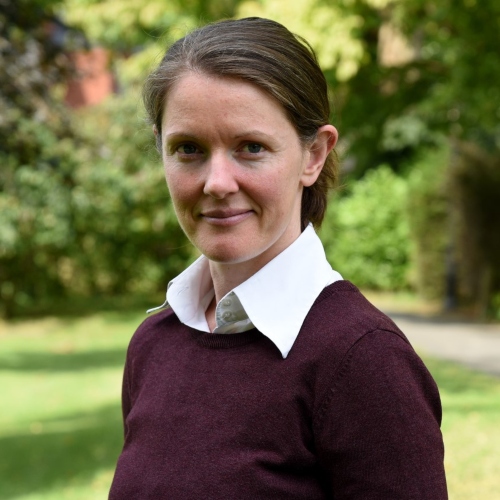Forensic Psychology, MSc
This MSc Forensic Psychology will teach you how to understand serious crime from a number of perspectives.
Our Forensic Psychology Master’s degree is designed to prepare you with knowledge and skills required for a career in a forensic setting. While we will do some myth busting around the glamorisation of this field, expect to be as fascinated by this topic as you will have imagined. The team responsible for your learning and development throughout this course all have extensive experience working with the police, prison service and the NHS.
Everything we teach has applied significance – we will share research and practice with you which has been developed ‘in the field’, providing an experience which will feel as though you are on the cutting edge of developments in this area. The BPS accreditation means that by obtaining this MSc, you will be completing the first stage in your professional training required to become a qualified practitioner and an accredited Chartered Forensic Psychologist.
This course is now accredited by the British Psychological Society (BPS).
School
Location
Duration
- 1 year full-time
- 2 years part-time
Start month
September
Home /international fees 2026/27
£11,800 /£18,700
What you should know about this course
What you will study
This course is being refreshed for 2026/7 to offer a more inclusive, impactful and future-focused learning experience. Modules shown are indicative topics and will be updated in Spring 2026.
About the course team
The teaching team consists of lecturers who gold chartership with the British Psychological Society, consultants working within the criminal justice system, and other professionals working as HCPC registered forensic psychologists in a variety of settings. This contributes to the status of this programme as one of applied, real world significance.
Come and meet us
We are offering virtual events so you can still experience how Greenwich could be the right university for you.
Next Open Days
Got a question?
To find out more about our Open Days and Campus Tours or if you need any assistance, please email opendays@gre.ac.uk.
Entry requirements
For more information, use our contact form or call us on 020 8331 9000.
You can also read our admissions policy.
Further information about entry
The MSc in Forensic Psychology is accredited by the BPS and represents Stage 1 of professional training in Forensic Psychology. Completion of Stage 1/ the MSc may allow graduates to progress to Stage 2 training, which is required to become a Chartered Psychologist with the BPS. Titles such as Forensic Psychologist are legally protected and can only be used once both Stage 1 and Stage 2 training have been successfully completed.
To progress to Stage 2 training, you must (1) hold a BPS-accredited undergraduate degree in Psychology, or an accredited conversion qualification conferring Graduate Basis for Chartered Membership (GBC); and (2) successfully complete the BPS-accredited MSc Forensic Psychology (Stage 1).
Note that GBC is typically obtained through a BPS-accredited undergraduate degree or conversion course. If you studied Psychology overseas, you may still be eligible for GBC if your degree contained sufficient psychology content, as assessed by the BPS (you must apply to the BPS directly).
If your intention is to become a Chartered Forensic Psychologist, you may complete this MSc either before or after obtaining your BPS-accredited undergraduate degree, completing a conversion course, or securing GBC. The background in psychology and research methods conferred by meeting GBC requirements are recommended but not essential for this MSc course. See here for more info.
Available to overseas students?
Yes
Can I use Prior Learning?
Find out more on our Recognition of Prior Learning pages.
How you will learn
Teaching
In a typical week, learning takes place through a combination of lectures and seminars. You will be able to discuss and develop your understanding of topics covered in lectures in smaller group sessions.
Contact hours normally take place three days a week and fall between 9am and 5pm, depending on your tutorials.
Class sizes
Class sizes vary by module. Lectures are normally attended by larger groups, and seminars/tutorials by smaller groups. This can vary more widely for modules that are shared between degrees. All students will have opportunities for 1-to-1 time with their tutors.
Independent learning
Outside of timetabled sessions, you will need to dedicate time to self-study to prepare for coursework, presentations and exams. Our library and online resources will support your further reading and research.
You can also join a range of student societies, including the Psychology Society.
Overall workload
Your overall workload consists of contact hours (lectures, seminars, etc), independent learning, and assessments. For full-time students, the workload should be roughly equivalent to a full-time job. For part-time students, this will reduce in proportion with the number of modules you are studying.
Assessment
Assessments are varied and may include essays, critical reflections, library reports, presentations, research posters, seen and unseen exams, and practical reports. The final assessment is a dissertation project.
Feedback summary
Information coming soon.
Dates and timetables
Full teaching timetables are not usually available until term has started. For any queries, please call 020 8331 9000.
Fees and funding
University is a great investment in your future. English-domiciled graduate annual salaries were £10,500 more than non-graduates in 2023 - and the UK Government projects that 88% of new jobs by 2035 will be at graduate level.
(Source: DfE Graduate labour market statistics: 2023/DfE Labour market and skills projections: 2020 to 2035).
| Cohort | Full time | Part time | Distance learning |
|---|---|---|---|
| Home | £11,800 | £1,967 per 30 credits | N/A |
| International | £18,700 | £3,117 per 30 credits | N/A |
Accommodation costs
Whether you choose to live in halls of residence or rent privately, we can help you find what you're looking for. University accommodation is available from £126.35 per person per week (bills included), depending on your location and preferences. If you require more space or facilities, these options are available at a slightly higher cost.
Scholarships and bursaries
We offer a wide range of financial help including scholarships and bursaries.
International Scholarship Award
International students who hold an offer to study at the University of Greenwich could receive a tuition fee discount worth up to £2,500 in their first year, for students from India, Sri Lanka, Nepal, Bangladesh, Pakistan, Nigeria or Ghana.
International Scholarship Award
Greenwich Progression Bursary
£3,000 bursary for home fee paying University of Greenwich final year undergraduate students and Alumni.
EU Bursary
Following the UK's departure from the European Union, we are supporting new EU students by offering a substantial fee-reduction for studying.
Financial support
We want your time at university to be enjoyable, rewarding, and free of unnecessary stress, so planning your finances before you come to university can help to reduce financial concerns. We can offer advice on living costs and budgeting, as well as on awards, allowances and loans.
Further costs may include (but are not limited to):
- Resources: you may need to purchase books for your studies, as well as specific computer software (estimate, £150 per year).
Careers and placements
What sort of careers do graduates pursue?
Graduates of this course can pursue a career in:
- Prison service
- Secure forensic hospitals
- Youth offending services and institutions
- Police service
- Security services/agencies
- Data collection and analysis in the Government sector e.g. Ministry of Justice or Home Office
- Academia
Do you provide employability services?
Our services are designed to help you achieve your potential and support your transition towards a rewarding graduate career.
The Employability and Careers Service provides support when you are preparing to apply for placements and graduate roles. It includes CV clinics, mock interviews and employability skills workshops.
Each School also has its own Employability Officer, who works closely with the industry and will provide specific opportunities relevant to your own course.
Accommodation
Greenwich
Living in halls of residence is a great way to make new friends and get into the social side of university life. With four great locations, all minutes away from the campus and the centre of historic Greenwich , you will be at the heart of one of the most beautiful university settings in the UK.
Rooms start at £146.30/wk and include Wi-Fi, utility bills, access to our on-campus gym and 24-hour security - and just a 10-minute train journey to central London. Students based at our Greenwich campus can also choose to live the Student Village at Avery Hill, which is only a short ride on our free shuttle bus.
Support and advice
Academic skills and study support
We want you to make the most of your time with us. You can access study skills support through your tutor, our subject librarians, and our online academic skills centre.
Where appropriate, we provide support in academic English and mathematics. If you need to use particular IT packages for a specific module, we provide training for this.
Not quite what you were looking for?
We've got plenty of other courses for you to choose from. Browse our postgraduate courses or check our related courses below.....
Psychology at the University of Greenwich
Gain an understanding of human behaviour and mental processes and develop your research skills. Many of our courses are accredited by the British Psychological Society and some include study in fields related to psychology, such as counselling.
Visit our psychology degrees page.
Mode of study
Select from the dropdown below.
| Course level | |
| UCAS code | |
| Duration | |
| Location |







